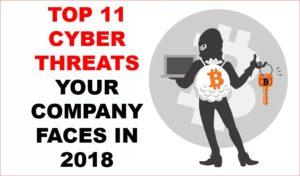The world of cryptocurrencies has exploded in popularity in recent years, with digital assets such as Bitcoin and Ethereum gaining mainstream attention. As traditional financial institutions and investors look to get involved in this new asset class, one popular investment vehicle that has emerged is the cryptocurrency exchange-traded fund (ETF).
In the Philippines, the Securities and Exchange Commission (SEC) has been tasked with regulating the growing market of cryptocurrencies and digital assets. With the rise of crypto ETFs, the SEC has been working to establish guidelines and regulations to govern these new investment products. Navigating the SEC regulations for crypto ETFs in the Philippines can be a complex and challenging process, as the regulatory landscape is still evolving.
One of the key areas of focus for the SEC in regulating crypto ETFs is investor protection. Given the volatile nature of the cryptocurrency market, there is a heightened risk of Luna Max Pro fraud and manipulation. The SEC aims to protect investors by setting strict guidelines for the issuance and trading of crypto ETFs. This includes requirements for disclosure, transparency, and reporting to ensure that investors are well-informed about the risks and potential returns associated with these products.
In addition to investor protection, the SEC also places a strong emphasis on market integrity. Crypto ETFs can have a significant impact on the overall market dynamics of cryptocurrencies, and the SEC seeks to prevent market manipulation and ensure fair and orderly trading. This includes measures to monitor trading activity, detect suspicious behavior, and enforce regulations to maintain a level playing field for all market participants.
One of the key challenges in navigating the SEC regulations for crypto ETFs is the rapidly changing nature of the cryptocurrency market. The SEC must constantly adapt and update its regulations to keep pace with new technologies, products, and market trends. This requires close collaboration with industry stakeholders, market participants, and regulatory bodies to ensure that the regulatory framework remains effective and relevant in a fast-paced and dynamic environment.
Another challenge faced by the SEC is the global nature of the cryptocurrency market. As cryptocurrencies are not bound by traditional borders, the SEC must work closely with international regulators to address cross-border issues and ensure consistent enforcement of regulations. This involves sharing information, coordinating enforcement actions, and harmonizing regulatory standards to create a more cohesive and unified approach to regulating crypto ETFs on a global scale.
Despite these challenges, the SEC is committed to fostering innovation and growth in the cryptocurrency market while protecting investors and maintaining market integrity. By working closely with stakeholders, monitoring market developments, and adapting regulations as needed, the SEC aims to create a safe and secure environment for the issuance and trading of crypto ETFs in the Philippines.
In conclusion, navigating the SEC regulations for crypto ETFs in the Philippines requires a deep understanding of the evolving regulatory landscape, investor protection measures, market integrity concerns, and global regulatory cooperation. By staying informed, engaging with regulators, and following best practices, market participants can ensure compliance with SEC regulations and contribute to the responsible growth of the cryptocurrency market.

 (770) 424-3393
(770) 424-3393 Atlanta, GA
Atlanta, GA 